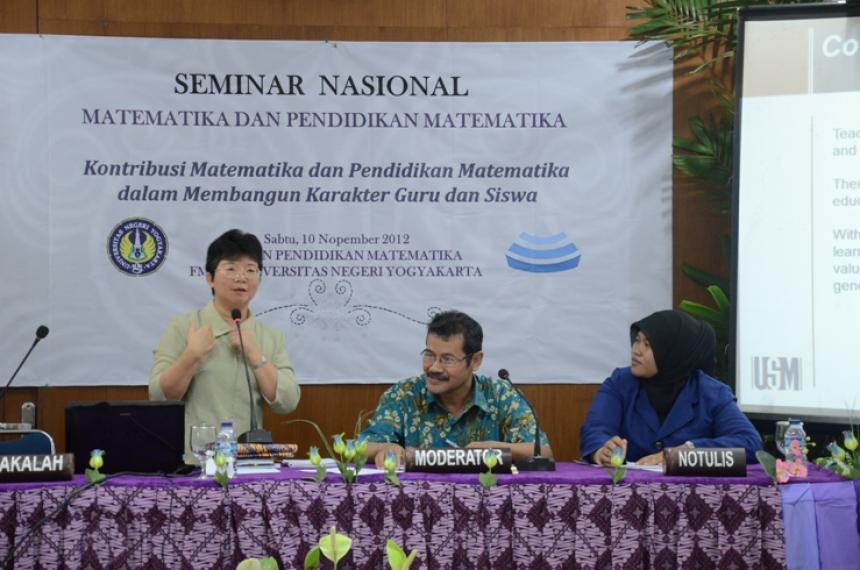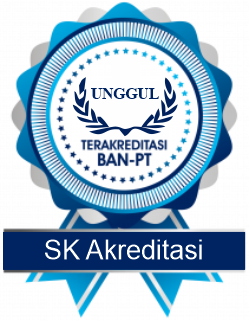LEARNING MATH MAKE STUDENTS HONEST AND OPEN TO CRITICISM

In mathematics, there are many theorems that are built from previously agreed definitions. A student who learns mathematics will automatically be trained to honestly use definitions or theorems to prove the next theorem. This proving process also trains openness to receive criticism and suggestions from others so as to get valid and accountable evidence.
The use of definitions, lemmas and theorems will train the consistency of students who learn them. Inconsistency will cause the final result to be wrong and even contradictory.
This was conveyed by UNNES Semarang Mathematics lecturer, S. B. Waluya from the National Seminar on Mathematics and Mathematics Education with the theme Contribution of Mathematics and Mathematics Education in Building the Character of Teachers and Students, Saturday 10/11 at FMIPA UNY.
It is said, students will become confident by themselves if in learning and utilizing mathematics can be understood as well as possible and students can understand and make sense to students. Conversely, if they cannot master it, they can become frustrated/discouraged.
Lim Chap Sam from Universiti Sains Malaysia explained that the great contribution of mathematics education in shaping student character was laid as a basis for the Singapore and Malaysian Ministries of Education in formulating the curriculum. The education curriculum in Singapore itself outlines the role of mathematics in two major points, developing children's positive attitudes, including self-confidence, finding ways to learn fun and perseverance and fostering reasoning, curiosity and intellectual power.
“Students who have great curiosity have a more creative and innovative way of thinking. While creative and innovative are the characters needed to build the nation in the future,” he continued.
Meanwhile, Jamilah Bondan WIjayanti from FMIPA UNY, said that mathematics learning pays attention to the human sides of students, known as Humanist Mathematics Learning. The side in question is the involvement of the brain and emotions in every learning activity. By implementing humanist learning plus sincerity and enthusiasm to be willing to continue to learn, a teacher/lecturer will contribute significantly to the development of the nation's character through the development of his/her character and the character of students. (witono&dian)
Copyright © 2026,



